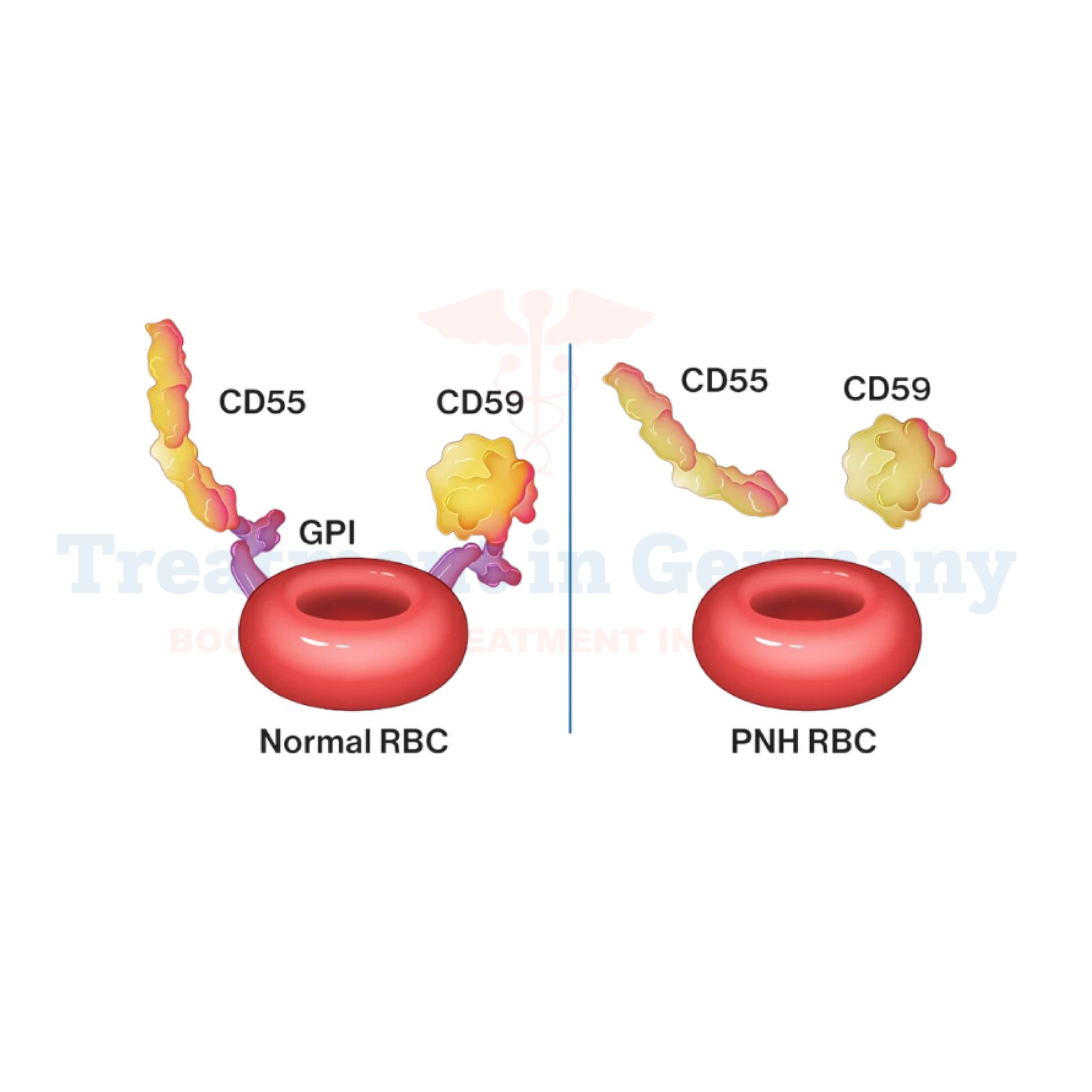What is Paroxysmal Nocturnal Hemoglobinuria (PNH):
Paroxysmal Nocturnal Hemoglobinuria (PNH) is a rare, acquired disorder of the blood characterized by the abnormal breakdown of red blood cells (hemolysis), blood clots, and impaired bone marrow function.
In PNH, the body's immune system mistakenly attacks its own red blood cells, leading to a deficiency of certain proteins on the cell surface, including CD55 and CD59.
This deficiency makes the red blood cells more susceptible to destruction by the body's complement system, resulting in symptoms such as fatigue, shortness of breath, abdominal pain, and dark urine.
PNH can also lead to complications such as thrombosis (blood clots), anemia, and organ damage if left untreated.
Side effects of Paroxysmal Nocturnal Hemoglobinuria (PNH):
The symptoms of PNH can vary in severity and may include:
- Fatigue and weakness due to anemia
- Shortness of breath
- Abdominal pain or discomfort
- Dark urine (hemoglobinuria)
- Frequent infections
- Easy bruising or bleeding
- Thrombosis (blood clots) leading to complications such as stroke or pulmonary embolism
How is Paroxysmal Nocturnal Hemoglobinuria (PNH) diagnosed?:
Diagnosing PNH typically involves a combination of clinical evaluation, laboratory tests, and specialized assays. Key diagnostic tests may include:
- Flow cytometry: This test measures the presence of certain proteins (CD55 and CD59) on the surface of red blood cells and other blood cells. A deficiency of these proteins is characteristic of PNH.
- Ham's test: This test assesses the sensitivity of red blood cells to complement-mediated lysis, which is a hallmark feature of PNH.
- Blood tests: Complete blood count (CBC) may reveal low levels of red blood cells (anemia), white blood cells, and platelets. Blood smear examination may also show evidence of hemolysis (such as fragmented red blood cells).
- Bone marrow biopsy: This procedure may be performed to assess the production of blood cells in the bone marrow and to rule out other underlying conditions.
Potential treatments of Paroxysmal Nocturnal Hemoglobinuria (PNH):
- Eculizumab (Soliris): Eculizumab is a monoclonal antibody that blocks the complement system, thereby reducing hemolysis and the risk of thrombosis in patients with PNH. It is administered intravenously and has been shown to significantly improve symptoms and reduce the need for blood transfusions.
- Bone marrow transplantation: In select cases, bone marrow transplantation (hematopoietic stem cell transplantation) may be considered as a potential cure for PNH. However, this procedure carries significant risks and is typically reserved for patients with severe or refractory disease.
- Supportive care: Symptomatic treatment options may include blood transfusions to manage anemia, anticoagulant therapy to prevent thrombosis, and antibiotics to treat infections.
- Investigational therapies: Ongoing research is exploring novel treatment approaches for PNH, including complement inhibitors targeting different stages of the complement cascade, gene therapy, and small molecule inhibitors.
👉 Contact us for further information and receive acomplimentary consultation.


.webp)
 (1).webp)

.webp)
 (1).webp)


.webp)
 (1).webp)

.webp)
 (1).webp)
